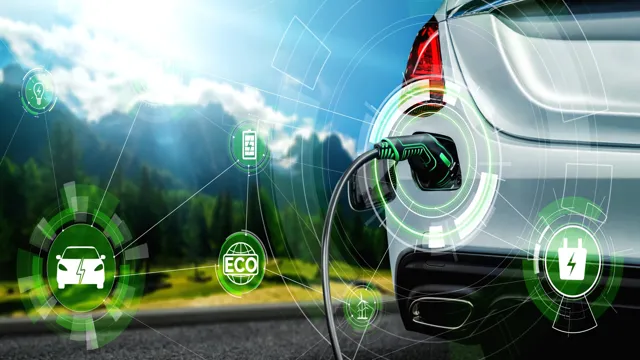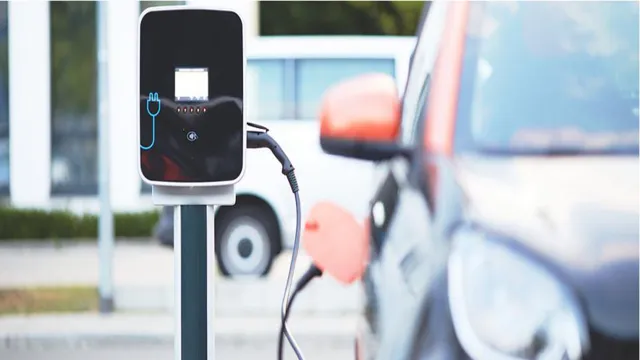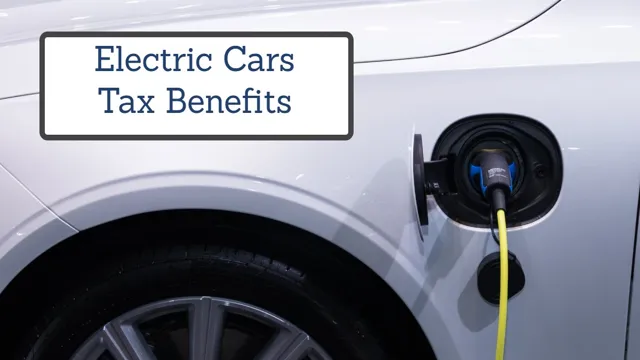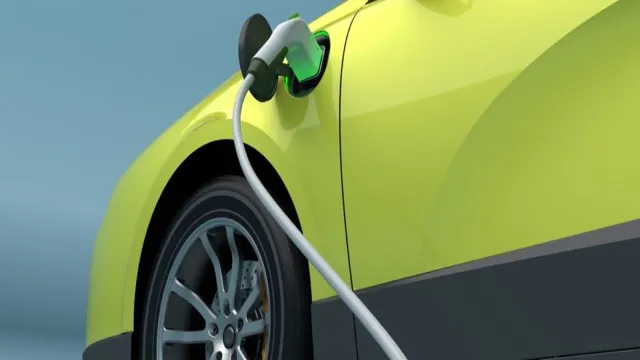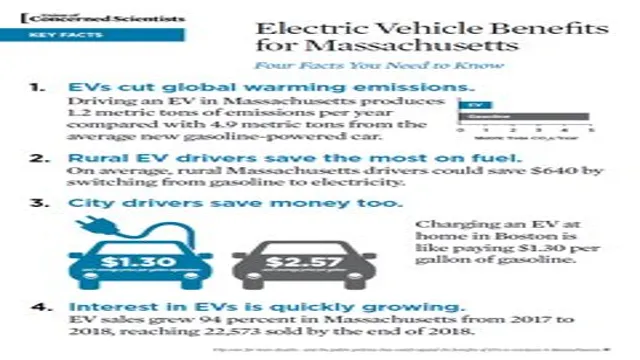Electric Cars and Benefit in Kind: What You Need to Know About Taxation and Savings
Electric Cars & Benefit-in-kind (BIK) – Exploring The Tax Benefits! Switching to an electric car could be one of the best decisions you make for your wallet and the environment. Not only is it eco-friendly, but owning an electric car could put you in an advantageous position when it comes to benefit-in-kind (BIK) tax. BIK tax is a tax levied on any benefits an employee receives in addition to their salary for employment.
Owning a company car, for instance, is one such benefit, and HM Revenue and Customs (HMRC) determine the amount of tax paid based on a range of factors, including the value of the car and carbon dioxide emissions. However, with electric cars boasting low or even zero carbon emissions, HMRC has incentives in place to encourage their adoption. As electric cars become more accessible, the UK Government is making significant strides to push towards electric, offering tax exemptions to companies on electric company cars and adding incentives to encourage more EV purchases.
If you’re still contemplating the switch to electric, then it’s imperative to understand the full set of tax benefits that come with owning one. In this blog, we’ll be taking a closer look at the tax benefits that come with electric cars and how you can make significant savings in comparison to standard fuel cars.
What is Benefit-in-kind?
Are you considering getting an electric car but wondering if you’ll have to pay Benefit-in-kind? If so, you’re not alone. Benefit-in-kind (BIK) is a tax on the benefits you receive from your employer in addition to your salary. When it comes to electric cars, there are different rules in place.
If your employer provides you with an electric car for personal use, you will have to pay BIK on it. However, the amount is much lower compared to traditional cars because electric vehicles have lower carbon emissions. In fact, if the car has zero emissions, you won’t have to pay any BIK at all! So, if you’re considering an electric car for your personal use, rest assured that the BIK won’t be a major burden on your finances.
Explanation of BIK
Have you ever heard of Benefit-in-kind (BIK)? It’s a term that refers to any non-cash benefit that your employer may provide as part of your overall compensation package. This can include things like a company car, private medical insurance, or even free meals at work. While BIK may seem like a great perk, it’s important to bear in mind that you may be liable to pay tax on its value.
The amount of tax you’ll pay will depend on the value of the benefit and your personal tax rate. This means that as the value of the benefit increases, so does the amount of tax you’ll owe. To avoid any surprises at tax time, it’s important to stay on top of which benefits you’re receiving and how they’ll impact your tax liability.
By doing so, you can ensure that you’re fully aware of the overall value of your employment package and can plan your finances accordingly.

BIK on Electric Cars
If you’re considering switching to an electric car, you may be wondering whether you still have to pay benefit in kind (BIK) tax. The good news is that, in most cases, electric cars are exempt from BIK tax. This is because there is no fuel available for employees to use personally, and because the emissions are far lower (and often non-existent) compared to traditional petrol or diesel cars.
However, it’s worth checking with your employer or HR department to make sure you won’t be hit with any unexpected costs. It’s also worth noting that the government offers incentives for electric car ownership, such as lower road tax and grants towards the purchase price. So, not only can you enjoy a greener commute, but you may also save some money in the long run.
Overview of BIK on Electric Cars
As electric cars become more popular, businesses and individuals need to understand the tax implications of owning and using them. Benefit in Kind (BIK) is a tax levied on employees for the non-cash perks provided by their employer, such as a company car. However, the BIK on electric vehicles is currently set at 0% for the tax year 2021/22, and 1% for the following two years.
This means that there is no tax liability for employees who use electric vehicles as company cars. The BIK rate for traditional cars is based on their CO2 emissions and can be up to 37%. The government is encouraging the use of electric cars to reduce carbon emissions, and the BIK policy is just one example of this.
Electric cars are also exempt from fuel benefit tax, which is another tax that traditional vehicles incur. In summary, the BIK on electric cars is a significant incentive for businesses to make the switch to eco-friendly vehicles and for employees to use them as company cars.
How BIK is calculated for Electric Cars
When it comes to calculating BIK for electric cars, there are a few things to keep in mind. Firstly, it’s important to understand what BIK is – it stands for Benefit-in-Kind, which is a tax that employers pay on the benefits their employees receive, such as company cars. The BIK rate for electric cars is based on the vehicle’s CO2 emissions and its list price.
As electric cars have zero emissions, they are currently in the lowest BIK band, which is 1%, rising to 2% in the tax year 2022-2 This means that employees who are given electric company cars will pay less tax than those with petrol or diesel vehicles. It’s worth noting that the list price of the car includes any optional extras, so this should be factored in when calculating BIK.
Overall, choosing an electric car for a company vehicle can be a great way to save money on taxes while also helping the environment.
Tax Savings on Electric Cars
Yes, you do pay a benefit in kind on electric cars. However, the good news is that tax savings on electric cars are available, making them much more affordable. The UK government offers a number of incentives to encourage people to switch to electric cars and help reduce carbon emissions.
One of these incentives is a reduction in the amount of benefit in kind tax you have to pay if you drive an electric car. In fact, for the tax year 2021-22, the benefit in kind rate for electric cars is 1%, compared to 20% for petrol or diesel cars. This means that if you choose an electric car as your company car, you can save thousands of pounds in tax compared to a traditional petrol or diesel car.
Additionally, there are other tax benefits such as exemption from vehicle excise duty and access to free charging points. With all these tax incentives available, it’s an ideal time to consider switching to an electric car for your personal or company vehicle.
Tax benefits of Electric Cars
If you’re considering purchasing an electric car, you might be able to take advantage of some tax savings. One of the most significant tax benefits of owning an electric car is the federal tax credit. This credit can amount to up to $7,500 in savings and is applicable to both new and used EVs.
To qualify for the credit, the vehicle must meet certain requirements, such as having a battery pack that is at least 5 kWh and being purchased for personal use. State and local tax incentives are also available, which can vary depending on where you live. In some states, you may be able to receive rebates, tax credits, or reduced registration fees for buying an electric car.
Additionally, some electric cars are exempt from state sales tax, making them even more affordable. If you’re interested in purchasing an electric car, be sure to research the tax incentives and credits that are available to you. By taking advantage of these savings, you can make owning an EV more affordable and accessible.
Comparison of BIK on Electric Cars vs. Petrol Cars
Tax Savings on Electric Cars When it comes to tax savings, electric cars have a significant advantage over petrol cars thanks to their lower emissions. Business owners that purchase electric vehicles for their company can enjoy reduced Benefit in Kind (BIK) rates, which means less tax to pay. Current regulations in the UK state that for the 2020/21 tax year, BIK tax on electric vehicles is 0% compared to petrol cars that are charged 21-37% depending on CO2 emissions.
This means that if you run a business and choose to buy an electric car, you could save thousands of pounds on your tax bill. It’s also worth noting that electric cars are exempt from road tax and the London Congestion Charge, offering additional savings. With tax incentives like this in place, it’s no surprise that more and more businesses are choosing to make the switch to electric vehicles.
Conclusion
So there you have it, folks. The answer to the burning question of whether or not you pay benefit in kind on electric cars is..
.drumroll, please..
.it depends! As with any tax-related matter, the specifics vary depending on various factors such as the cost of the car, the charging setup, and the employer’s policies. But one thing is for sure: electric cars are becoming an increasingly popular choice for environmentally conscious individuals and companies alike, and it’s about time the tax system caught up.
So whether you’re cruising around in a Tesla or a Nissan Leaf, just remember that the benefits are not just limited to the planet, but also to your wallet. Happy green driving!”
Summary of BIK on Electric Cars
When it comes to tax savings on electric cars, the UK government’s Benefit-In-Kind (BIK) policy may just be the incentive you need to make the switch. Essentially, the BIK policy offers significant tax breaks to drivers of electric and low-emission vehicles, as they are seen to be better for the environment. In fact, electric car drivers stand to pay just 1% in BIK tax for the current fiscal year, which is a huge decrease from the 16-37% that drivers of diesel or petrol cars are subjected to.
This means that electric car drivers can potentially save thousands of pounds over the course of a year, depending on the make and model of their vehicle. It’s important to note that the BIK policy is subject to change each fiscal year, so it’s worth keeping up to date with the latest developments if you’re considering making the switch to electric. Overall, the BIK policy is a great way to incentivize the use of electric cars and help promote a more sustainable future.
Final Thoughts on BIK & Electric Cars
When it comes to tax savings, electric cars can be a true lifesaver. Under the Business Investment Relief (BIR) scheme, UK residents can offset the cost of an electric vehicle against their tax bill. This means that if you buy an electric car for your business, you won’t have to pay tax on the profit made from selling it, as long as it’s used for business purposes.
The BIR scheme is designed to help businesses invest in assets that are eligible for tax relief, which includes electric vehicles. With the cost of electric vehicles falling and the range of models available increasing, it’s a great time to consider investing in an electric car for your business. Not only is it eco-friendly, but it’s also an excellent way to save money on your tax bill.
FAQs
What is benefit in kind for electric cars?
Benefit in kind for electric cars is a tax on the non-cash benefits that employees receive from using a company electric car for their personal use.
How is benefit in kind calculated for electric cars?
Benefit in kind is calculated based on the car’s list price, CO2 emissions, and electric range. The lower the CO2 emissions and higher the electric range, the lower the benefit in kind tax.
Do I have to pay benefit in kind if I use an electric car for business purposes only?
No, if you use an electric car for business purposes only, you do not have to pay benefit in kind tax as it is exempt.
What happens if I charge my electric car at work?
If you charge your electric car at work, the electricity you use is not subject to benefit in kind tax. However, your employer will need to report this as a taxable benefit to HMRC if you charge your electric car at work for personal use.

